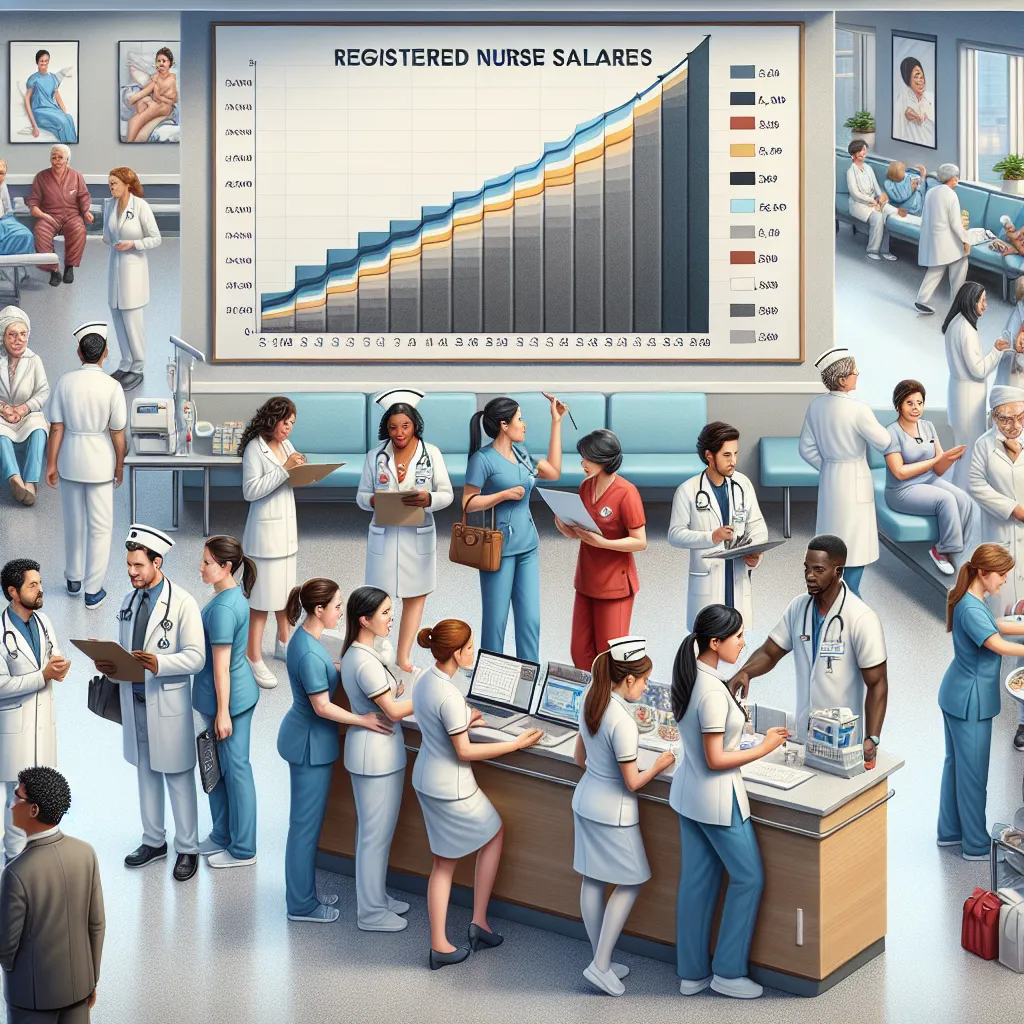Introduction
Being a registered nurse (RN) is a rewarding and fulfilling career choice. Apart from the noble act of caring for patients, it also offers financial stability and growth opportunities. In this article, we will explore the current state of registered nurse salaries and the various factors that influence them.
1. Overview of Registered Nursing
Before delving into salary details, let's understand the role of a registered nurse. RNs are healthcare professionals responsible for providing patient care, administering medications, coordinating treatments, educating patients and their families, and collaborating with other healthcare professionals.

2. Factors Influencing Registered Nurse Salaries
2.1 Education and Experience
One of the primary factors affecting registered nurse salaries is education and experience. Generally, nurses with higher levels of education, such as a Bachelor of Science in Nursing (BSN) or a Master of Science in Nursing (MSN), earn higher salaries. Additionally, experience in the field also plays a crucial role in determining salary levels.
2.2 Geographic Location
The geographic location where a registered nurse practices also impacts their salary. Salaries can vary significantly between different states, cities, and even rural areas. For example, registered nurses working in metropolitan areas tend to earn higher salaries due to higher living costs and demand for healthcare services.
2.3 Specialization
Registered nurses can choose to specialize in various areas of healthcare, such as pediatrics, critical care, oncology, or geriatrics. Specialized nurses often receive higher salaries due to their advanced knowledge, skills, and increased demand for their expertise.
2.4 Healthcare Setting
The type of healthcare setting in which a registered nurse works can also impact their salary. Nurses employed in hospitals, especially those in specialized units like intensive care or emergency departments, generally earn higher salaries compared to those working in outpatient clinics or long-term care facilities.
3. Current Registered Nurse Salary Range
The salary range for registered nurses varies depending on the factors mentioned above. According to the Bureau of Labor Statistics (BLS), the median annual wage for registered nurses in the United States was $75,330 as of May 2020. This indicates that half of the registered nurses earned more than this amount, while the other half earned less.
However, it is important to note that salaries can differ significantly based on location. For example, registered nurses in California, New York, and Hawaii tend to earn higher salaries compared to those in other states due to higher costs of living and increased demand.
4. Job Outlook for Registered Nurses
The job outlook for registered nurses is exceptionally positive. The demand for healthcare services continues to grow, and RNs are needed to provide care for an aging population. According to the BLS, employment of registered nurses is projected to grow 7% from 2019 to 2029, faster than the average for all occupations.
This projected growth is mainly attributed to factors such as an increased emphasis on preventive care, advances in medical technology, and the need to replace retiring nurses. Therefore, the job prospects for registered nurses remain promising, which further enhances the overall appeal of the profession.
5. Conclusion
Registered nursing offers a stable and rewarding career path. While salaries may vary based on factors such as education, experience, location, specialization, and healthcare setting, the demand for registered nurses continues to rise. With a positive job outlook and the opportunity to make a difference in people's lives, pursuing a career as a registered nurse can be a fulfilling choice both personally and professionally.